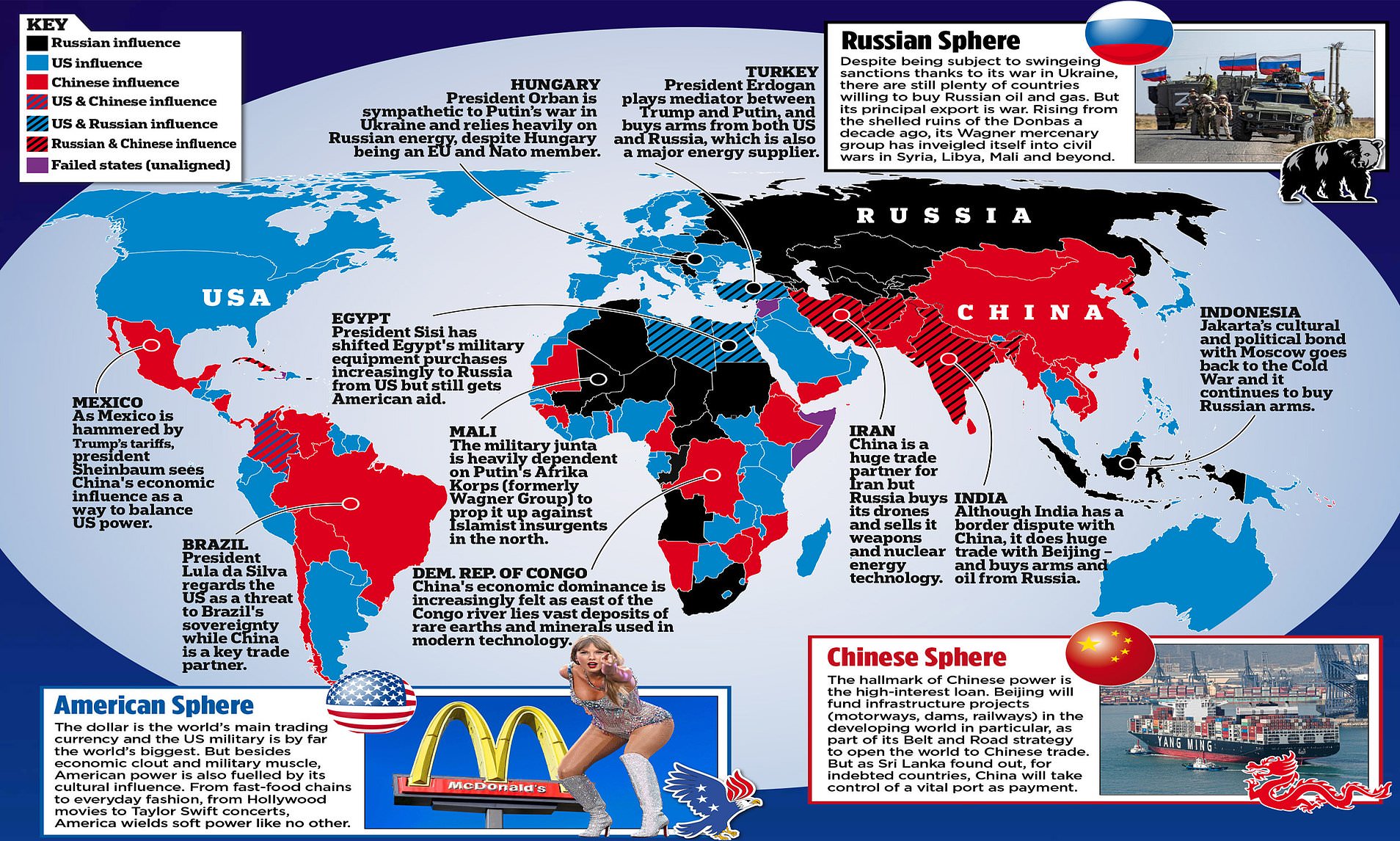
The Stage is Set for a New Era of Global Power Struggle
On Friday, Donald Trump’s long-anticipated one-on-one meeting with Vladimir Putin will finally take place in Alaska. This diplomatic encounter has been years in the making, and it marks a significant shift in international relations. The US President took decisive steps to make this meeting possible by removing a major obstacle: the presence of Volodymyr Zelensky. When asked whether Putin needed to meet with the Ukrainian leader before being granted an audience with Trump, the president responded clearly: “No, he doesn’t.” This statement signals that the meeting will be exclusive to the two superpowers, with no involvement from other nations.
This high-stakes meeting will be closely watched by Chinese President Xi Jinping, who holds considerable influence over Putin. As the world moves into a new era defined by powerful leaders, the outcome of the Ukraine conflict appears to hinge on the decisions made in Beijing, Washington, and Moscow.
A Tri-Polar World Order
The global landscape is now dominated by three military and economic giants: the United States, Russia, and China. Each of these nations wields its power in unique ways. The US maintains its dominance through financial strength, military might, and cultural influence. China's influence is more economic, with its Belt and Road Initiative extending its reach across Asia, Africa, and South America. Russia, on the other hand, exerts its power primarily through military force, as seen in its invasion of Ukraine.
The shifting balance of power is evident in the way different regions are influenced by these three nations. The US and its allies hold sway over much of Europe, while China's economic grip extends across Asia, Africa, and parts of South America. Russia's influence, though less expansive, is felt in pockets of eastern Europe, North Africa, and beyond.
The United States: A Declining but Still Powerful Force
Despite its declining global influence, the US remains a dominant force. The dollar is still the primary global reserve currency, though its dominance has waned in recent years. Trump's re-election has been marked by a focus on isolationism, with a public stance against foreign entanglements. However, military operations in Iran and continued support for Ukraine have somewhat counteracted this approach.
Trump's aggressive policies, including threats to seize territories and impose tariffs, have strained relationships with traditional allies. His decision to stop underwriting European security has raised questions about the future of NATO. While his "America First" policies may cost him friends, Trump is aware of the need to prevent the other two superpowers from uniting against the US.
China: An Economic Giant with Growing Influence
China's rise as an economic powerhouse is undeniable. Its products are essential to daily life, and its influence is reshaping the global economy. Many developing countries are moving away from the US dollar, turning instead to the Chinese yuan. This shift highlights the growing importance of China in the global financial system.
China's workforce is formidable, although demographic challenges loom due to its former one-child policy. Despite this, the country has positioned itself as a leader in emerging industries such as rare-earth mineral mining, which is crucial for technology production. Through strategic investments in infrastructure, China has built influence over client states, often using economic leverage rather than military force.
However, China's ambitions extend beyond economics. There are concerns about its potential claims on Taiwan, a region that has an implicit US protection guarantee. This tension underscores the complex dynamics between the three superpowers.
Russia: A Military Power with Strategic Alliances
Russia's vast energy reserves remain a critical asset for many countries, despite Western sanctions. Its military capabilities are bolstered by significant annual spending, with a large portion of its budget allocated to defense. Russia's military relies heavily on Chinese imports, including advanced technologies used in drones and artillery.
The relationship between Russia and China is strengthening, with both nations benefiting from their mutual interests. Russia gains access to critical supplies, while China benefits from increased trade and influence. This partnership could reshape the global balance of power, as the two nations work together to counter Western influence.
The Future of Global Power Dynamics
As the world watches the developments between these three superpowers, the future remains uncertain. The actions taken by Trump, Putin, and Xi Jinping will shape the course of international relations for years to come. With each nation pursuing its own interests, the world stands at a crossroads, where the decisions of a few will determine the fate of many.
